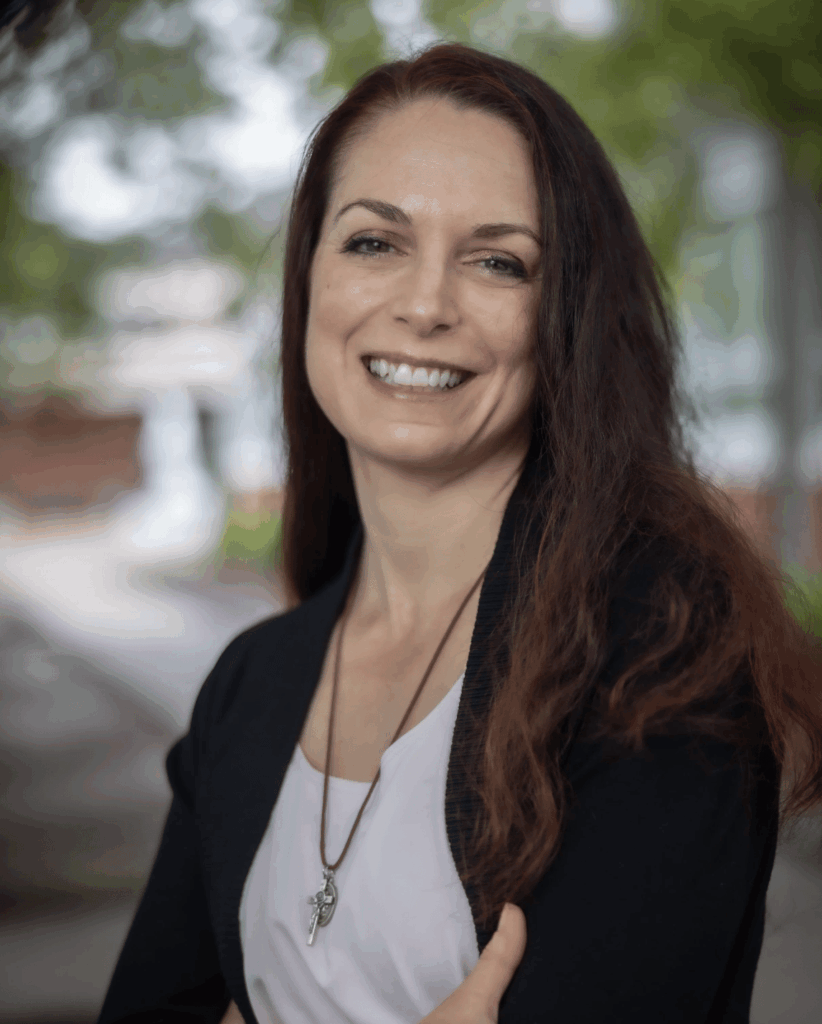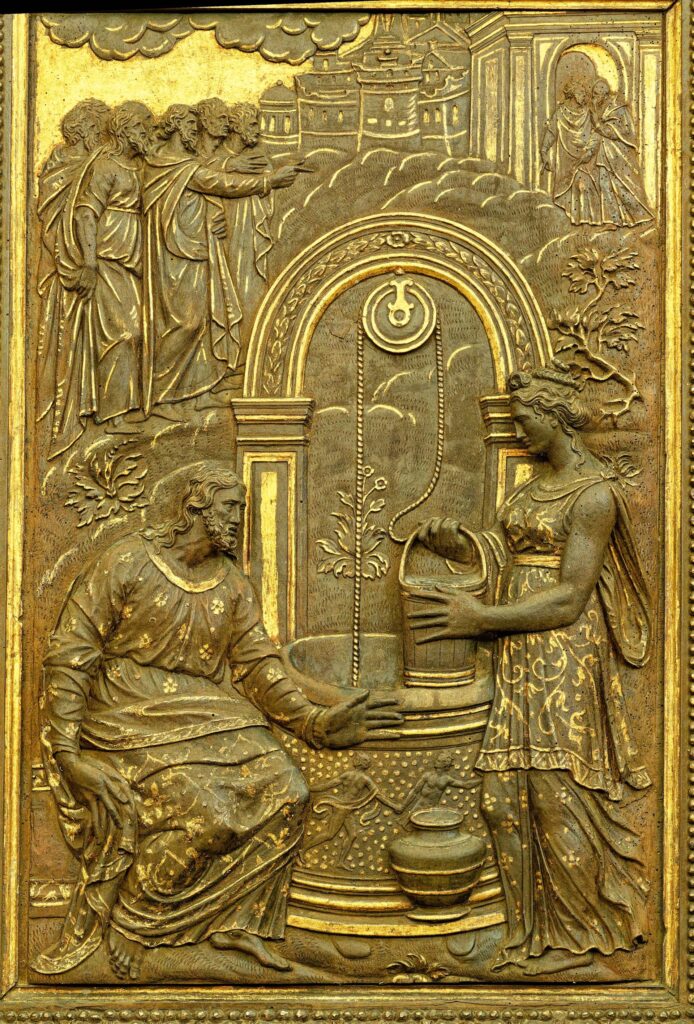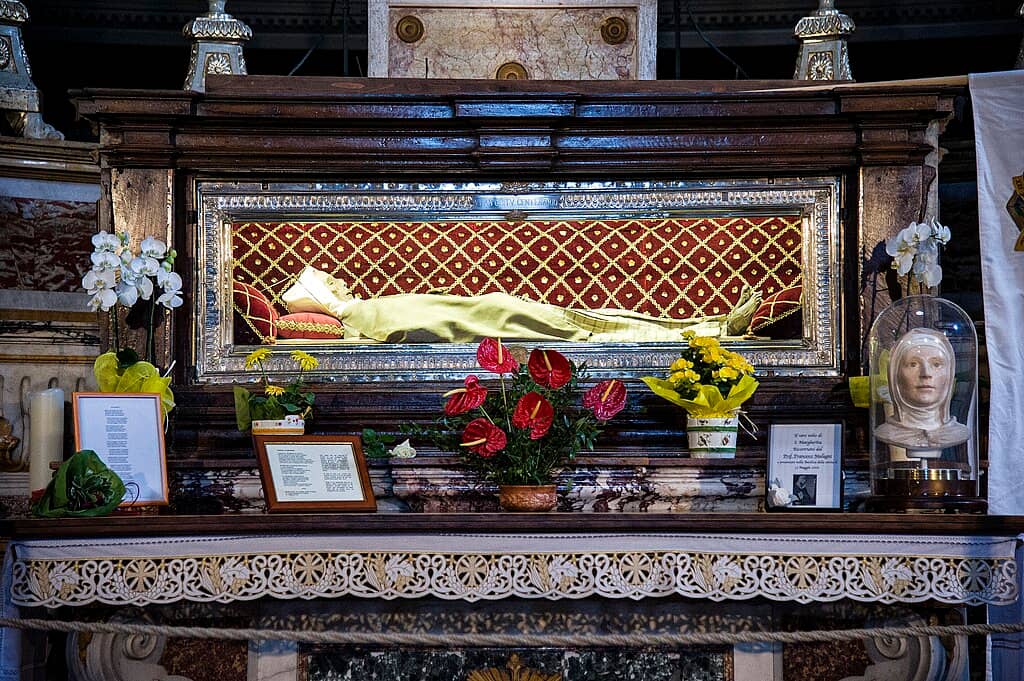MEET JENNY duBAY
by Genevieve Kineke
Jenny duBay is a freelance Catholic writer and speaker, certified wellness consultant, and trauma-informed life coach. She is the founder of a coaching apostolate, Create Soul Space: A Catholic’s Guide to Domestic Abuse. Her novel on the early life of Catherine of Siena, World between Worlds, was just published. She’s now hard at work researching and writing the sequel.
Interview by Genevieve Kineke of Domus Aurea.
Genevieve: I’m so sorry that domestic violence was a part of your life. Sadly, it’s the backdrop to many, many lives. Can you tell me what happened?
Jenny: Well, it was a long journey, that’s for certain. In my case, it was not physical, but emotional, psychological, and verbal abuse. So it was years of agony, of trying to figure things out, of trying to change, trying to please him. Finally, when my daughter was studying psychology in college, she recognized the pattern and said to me, ‘You know, mom, this is abuse.” So it actually took someone else—of all people, my daughter—to really point this out to me.
I knew deep within myself there was something really wrong. It was getting worse, because abuse does progressively get worse. So I started researching. I soon recognized that yes, I was experiencing abuse, and I needed to do something to start healing. I’m the only one who can change myself.
Genevieve: Exactly. So how did you go about this? Did you begin with yourself or did you begin by trying to identify the behaviors that were toxic?
Jenny: Well, the behaviors that were toxic were pretty obvious. (Here is a book that describes those behaviors.) I said to myself, “Yeah, I didn’t think this was normal.” I’m a Catholic woman. I am in a sacramental marriage. I’m being mistreated. These were my questions: Does the Church teach that I’m supposed to accept my suffering and just stay married? What can be done?
And I did not know. That really started me on the path of researching. The USCCB wrote a document called “When I Call for Help,” which is all about domestic abuse. And they state in that document that, “Abuse, not divorce, breaks up marriage.” And that’s a direct quote. So there are resources, but I just had to invest a lot of time in finding them.
Genevieve: I want to return to something you said previously. You say the only thing you can change is yourself, and that’s absolutely true. And yet you also recognized that the other person’s behavior was toxic. And part of that toxicity is always pointing a finger at you, saying, “You’re the problem.” How do we not conflate those two things? How do you go about changing yourself when you are not the problem?
Jenny: That’s a really, really good question! It almost sounds like, if we change ourselves, then the marriage is going to be great, right? No, that’s not the way it works. So that is part of the change, being given the grace to admit the abuse without minimization. I had to say, “My marriage isn’t just difficult, it’s actually abusive.” So that was the first change in me, to stop minimizing and to face what was truly going on.
Genevieve: Were you able to reach out to find a very good counselor? Was that available to you?
Jenny: No. I tried. I couldn’t find a Catholic counselor who was trauma-informed. I did eventually find one who was Christian, so thank God for that.
Genevieve: That’s a phrase that’s new to me, “trauma-informed.” Can you tell me what that means?
Jenny: Trauma affects more than your mind, but also your body, your nervous system, your health. Trauma-informed counselors are trained to identify symptoms related to trauma, and this helps patients get the help that they need.
Genevieve: Now on your website, you talk about trauma and you talk about betrayal. Are those two different things?
Jenny: They are two different things that interweave together. Obviously abuse is in betrayal. The term ‘betrayal trauma’ refers specifically to the trauma a woman experiences when her husband has been unfaithful. This can be a physical infidelity, an emotional affair, or a pornography addiction, which is rampant today. Abuse is a pattern, a consistent chronic pattern. Abusive behaviors often include lying, manipulation, and gaslighting, usually to cover some dark secret.
Genevieve: Can you heal yourself and your responses and your own frame of mind and remain in this toxic situation? What do you recommend for women in these situations?
Jenny: Obviously it would depend on the case. Abuse is a pattern, and there is a cycle to it. There’ll be a blow-up, an upsetting situation. After the incident, there will be lies, blame shifting, and manipulation. Then there is a phase of remorse. He’ll say, “I’m so sorry. I didn’t mean it. I’ll never do it again.” Then there’ll be a calm phase where things are “okay.” And then another blow-up starts the cycle over again.
So, these abuse cycles create something called a trauma bond. Those times of calm feel so good. It’s like you are a starving person and finally, you get a crumb. So if you’re still in the same household, it is extremely difficult to break that cycle of abuse. I think separation for a time is the healthier route.
Genevieve: I am thinking shame is a factor. You may think that everyone else in the pews has this buttoned-up life, and here yours is so messy or not what it appears. Did you experience that?
Jenny: I certainly did experience shame. And so do the women I work with. People don’t see the bruises that are in your soul. And there’s fear that if a divorce ends up being necessary, they think they or their children won’t be welcomed in mother’s groups or things like that.
A lot of my ministry is bringing it out into the open. When you bring things into the light and let the light of Christ shine upon them, then you can realize there’s no shame to be in need of healing. As St. Catherine of Siena said, “so you can truly be the person that you were meant to be.” That’s what I try to do in my coaching ministry.
Genevieve: I’m sure you’re looking for guidance from priests, but there’s a lot that priests don’t know, because they are not married and certainly not in toxic relationships. Maybe you gently need to lead them to provide the wisdom that is needed within marriage? How do you introduce your work to priests?
Jenny: My book was written for women specifically in these relationships, but it can be read by priests, and I’ve had many priests read the book and even buy copies for others in ministry. If you’re a priest and you email me with your diocesan email address, I’ll send you a book for free. (Contact information can be found on Jenny duBay’s website.)








